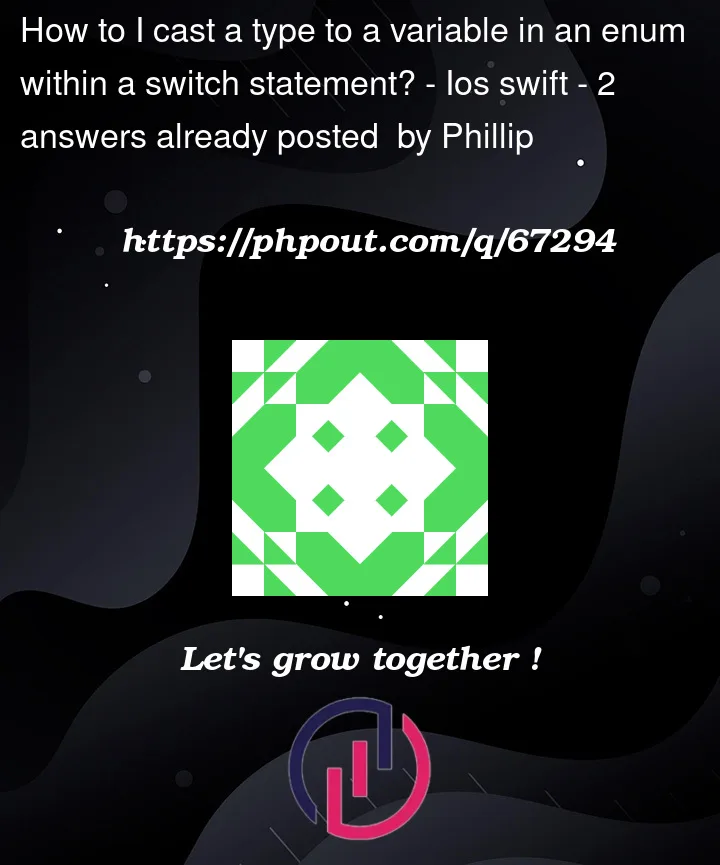switch error {
case Project.Client.LoadError.operationFailed(let error2):
switch error2 {
case Project.Client.APIClientError.invalidStatusCode(let message, _):
guard message != nil, message == "error" else {
return refresh()
}
delegate?.error(invalidScript)
default:
refresh()
}
default:
refresh()
}
Here is my current code. This works but I feel there is a better way to do this.
How can I make error2 NOT go through another switch statement and just cast it as an invalidStatusCode that I can use?
Or, what terms can I search up to better understand what is happening here/understand what to look up myself for the answer?
As I might not be fully understanding switch statements as casting type.
Thank you in advance.




2
Answers
Pattern matching of enums with associated values is composable, so you can do this:
You might notice that this is a bit hard to read because of how long these fully-qualified type-names are.
I suspect the type of
erroris the generalError, but in other cases, if the type oferroris already-known to beProject.Client.LoadError, then you can just use.operationFailed(leaving the type to be inferred from context). And if.operationFailed‘s associated type is known to have typeProject.Client.APIClientError, you can just use.invalidStatusCode.If not, you can use some local type-aliases can help with that:
Since you are just drilling down to one case for both switches, you don’t need any switches at all. You can use
if caseinstead. To generalize, suppose we have this:Now suppose
subjectmight be an Outer. Then to determine that this is an Outer’s.innercase whose Inner value is.messageand that message’s value is "howdy", we can say: